RV Solar Panels: A Beginner's Guide To Power Your Journey
From off-grid adventures to mobile living, RV solar panels deliver power and comfort wherever your journey takes you—letting you roam freely with the sun as your energy source!
In the world of recreational vehicles (RVs), solar panels are revolutionizing how enthusiasts explore the great outdoors. RV solar panels harness the power of the sun to provide renewable energy, offering independence from traditional power sources. Whether you're cruising through national parks or camping off-grid, these panels ensure a sustainable and eco-friendly way to charge batteries and run appliances. As interest in sustainable living grows, RV solar panels have become essential for adventurers seeking energy efficiency and cost savings. This article explores what RV solar panels are, how they function, and crucial components like solar kits, empowering travelers to embrace a greener journey without sacrificing comfort or convenience.
What Are RV Solar Panels
RV solar panels are photovoltaic modules designed specifically for recreational vehicles (RVs) to harness sunlight and convert it into electricity. These panels are composed of solar cells that absorb sunlight, initiating a process where photons from the sun's rays create an electrical current. This electricity is then used to charge batteries within the RV, powering various appliances and devices.
The primary advantage of RV solar panels lies in their ability to provide sustainable and off-grid power solutions. They reduce dependency on traditional fuel-powered generators and shore power hookups, offering freedom and flexibility during travels. This independence is particularly valuable for adventurers exploring remote locations or practicing eco-friendly lifestyles.
Solar panels for RVs come in various sizes and configurations to suit different energy needs and vehicle setups. Flexible solar panels can be mounted on curved surfaces, while rigid panels are often installed on the roof of the RV for optimal sunlight exposure. Advances in solar technology have also made panels more efficient and durable, capable of withstanding diverse weather conditions encountered on the road.
How Do RV Solar Panels Work
RV solar panels work by capturing sunlight through photovoltaic cells, converting solar energy into electricity that can power appliances and charge batteries onboard. These panels are typically mounted on the roof of the RV to maximize exposure to sunlight while traveling or parked. Check out our guide to learn more details about how do solar panels work.
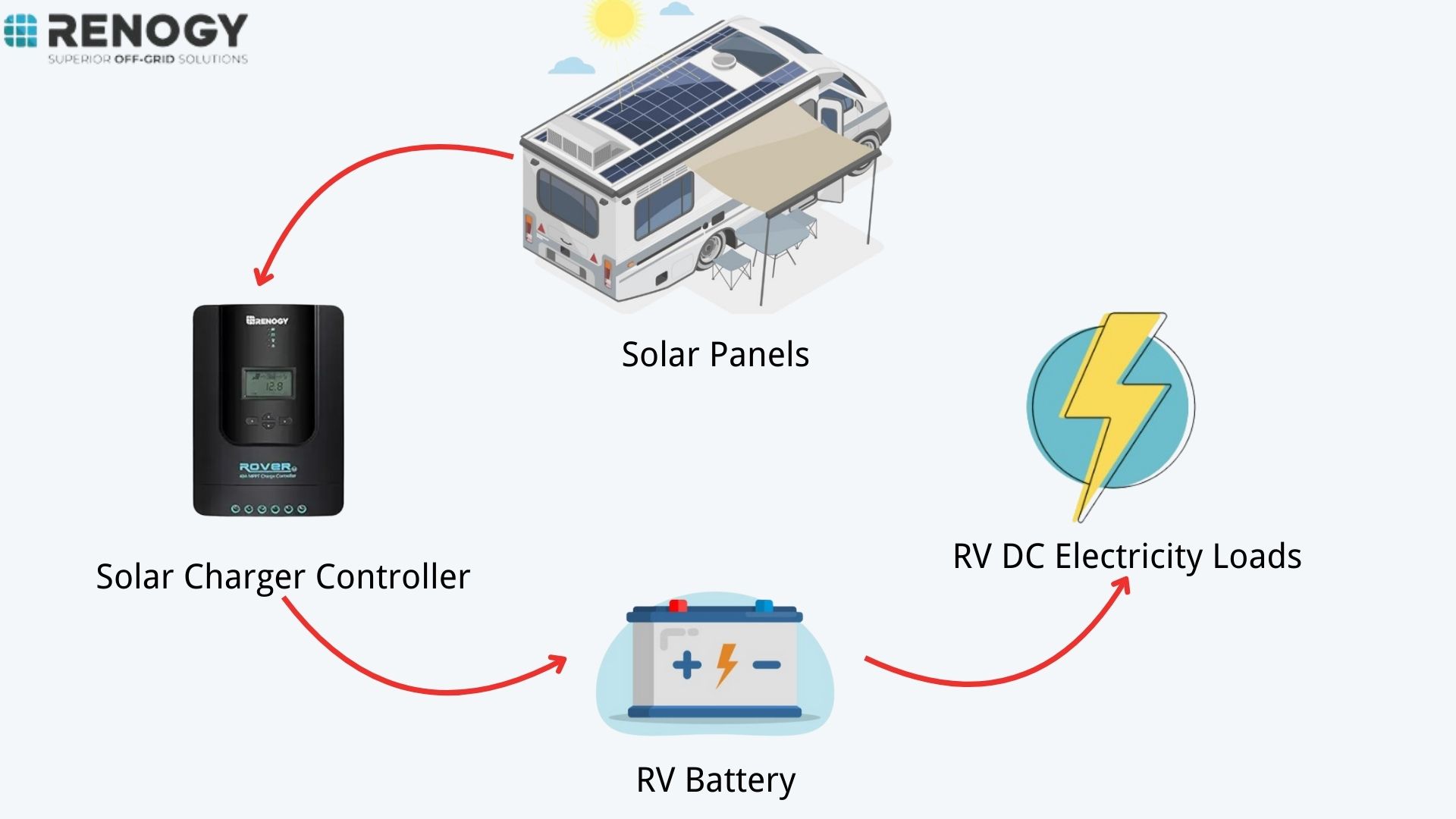
When sunlight strikes the solar panels, the photons (light particles) create an electrical current within the semiconductor materials of the panels. This direct current (DC) is then sent to a charge controller, which regulates the charging process to protect the batteries from overcharging.
From the charge controller, the DC electricity is either stored in batteries for later use or converted into alternating current (AC) through an inverter to power AC appliances. RV solar systems can be customized based on energy needs, with options for additional panels or batteries to increase power capacity.
Overall, RV solar panels provide a clean, renewable energy source that enhances independence and sustainability while enjoying life on the road.
How Many Solar Panels Do I Need For RV
Determining the number of solar panels needed for your RV depends on several factors, including your energy consumption, travel habits, and the efficiency of the solar panels themselves.
Calculating How Much Energy You Use:
To determine how many solar panels your RV needs, start by calculating your daily energy consumption. Consider all appliances and devices you regularly use, such as lights, fans, refrigerator, and electronics. Each device should list its power consumption in watts (W) or kilowatt-hours (kWh) per day. Multiply the wattage by the number of hours each device is typically used to get its daily energy consumption in watt-hours (Wh). Add together the total energy consumption of all devices to find your daily energy usage.
For example, if your LED lights total 50 watts and run for 4 hours a day, they consume 200 watt-hours (Wh) daily. Your refrigerator might use 100 watts and run for 24 hours, consuming 2400 Wh daily.
Calculating How Many Solar Panels You Need:
Once you know your daily energy consumption in watt-hours (Wh), you can estimate the number of solar panels required. Solar panels are rated in watts (W) of power they generate under standard conditions. Divide your daily energy usage by the wattage output of a single solar panel to get an estimate of how many panels you'll need.
Consider factors like panel efficiency and sunlight availability. Higher efficiency panels produce more power per square foot and are beneficial in limited space scenarios. Additionally, assess your typical camping locations: more sunlight exposure means fewer panels may be needed. For personalized advice, use Renogy’s superior solar power calculators and diy your own solar panel based on your specific RV setup and energy needs.
What Components Do I Need For My RV Solar System
Building an effective RV solar system involves several key components included in an RV solar kit to efficiently harness solar energy:
Solar Panels
These panels capture sunlight and convert it into electricity. Choose between flexible panels, which are lightweight and easy to install on curved surfaces, or rigid panels for maximum efficiency and durability on RV roofs.
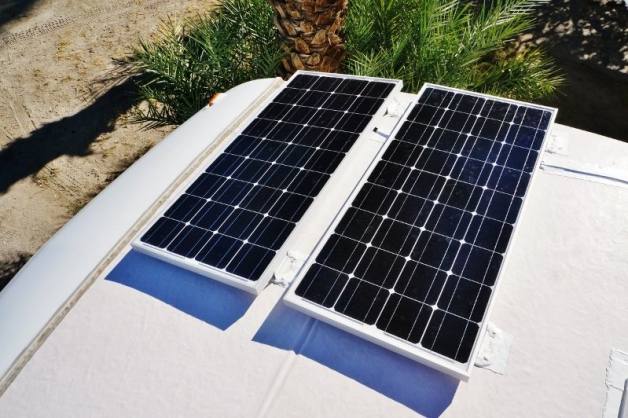
Charge Controller
Charge controller is essential for managing the solar power flow to your batteries, preventing overcharging and optimizing battery lifespan. Select a controller, such as PWM (Pulse Width Modulation) or MPPT (Maximum Power Point Tracking), that matches your panel voltage and battery type for optimal performance.
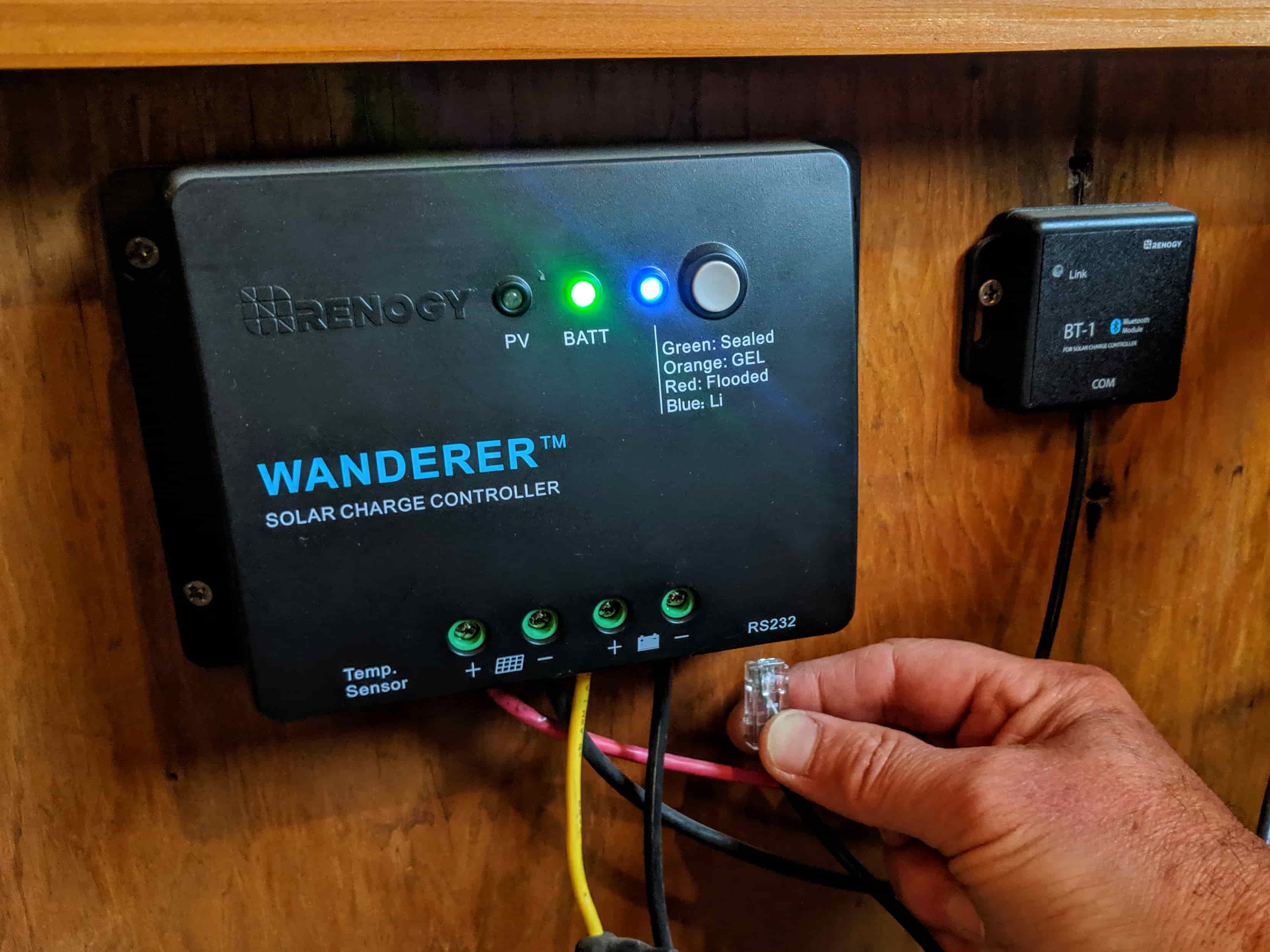
Batteries
Deep-cycle batteries store solar energy for use during periods of low sunlight or at night. Options like AGM (Absorbent Glass Mat) or lithium-ion batteries offer different capacities and longevity, catering to varying energy needs and space constraints in your RV.
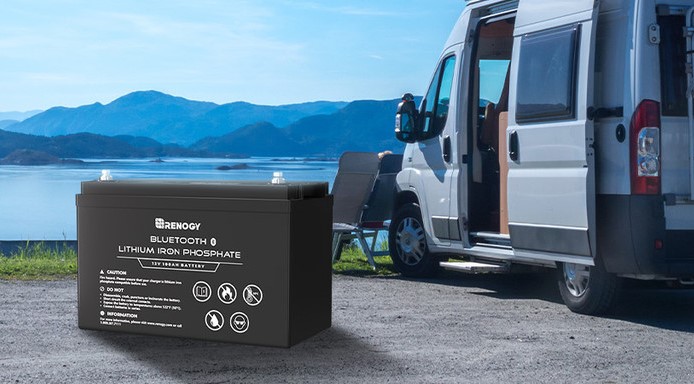
Inverter
Converts DC (direct current) electricity from your batteries into AC (alternating current) power, essential for running standard household appliances and electronics in your RV. Choose an inverter size based on your peak power requirements to ensure compatibility with your devices.
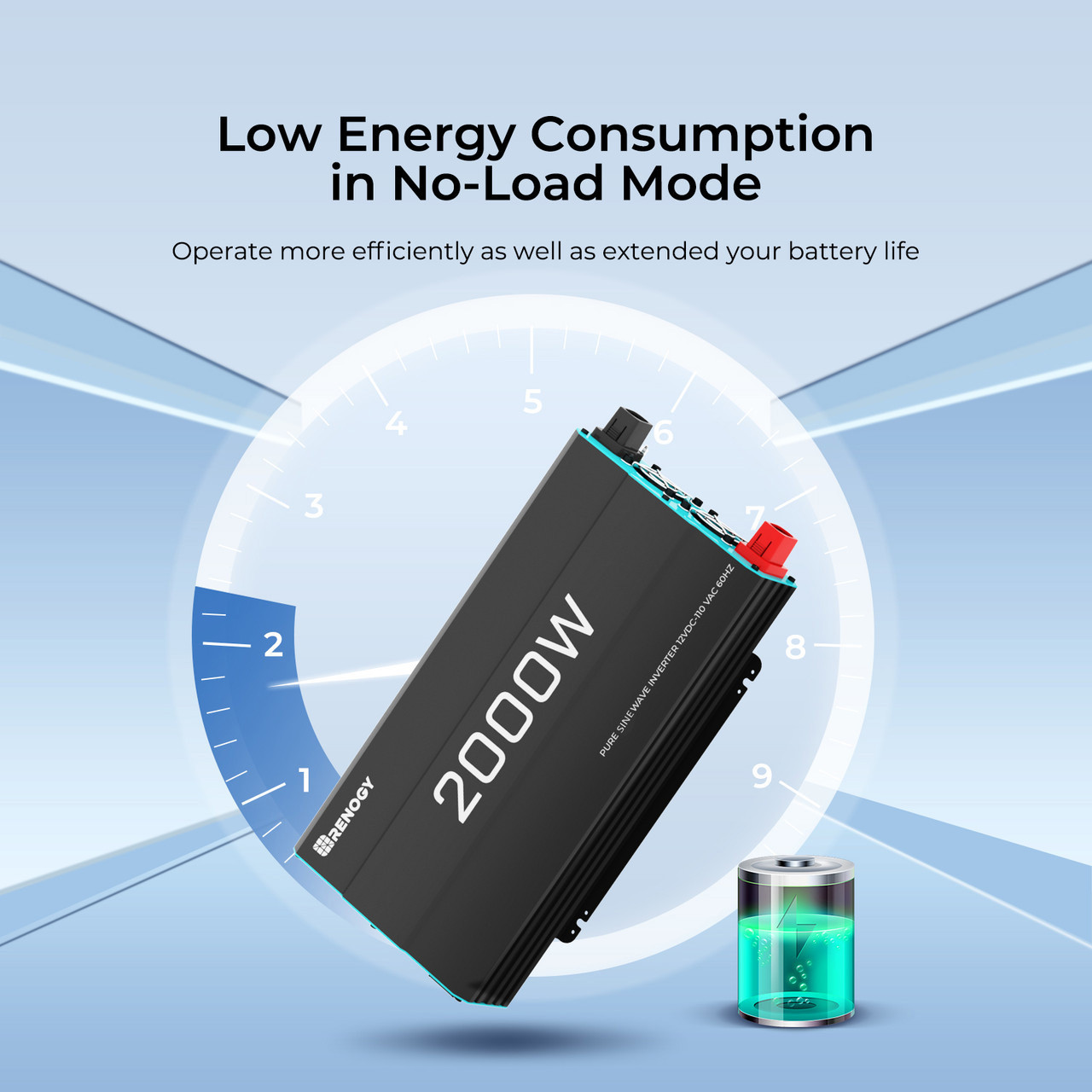
Are RV Solar Panels Worth It
Investing in RV solar panels can significantly enhance your travel experience and financial savings. Solar panels for RVs offer independence from traditional power sources, allowing you to camp off-grid without relying on noisy generators or costly hookups. They provide a sustainable energy solution, reducing your carbon footprint while exploring nature.
Financially, RV solar panels can lead to long-term savings by reducing reliance on campground fees and fuel for generators. Over time, the initial investment in solar panels pays off through lower utility costs and increased flexibility in choosing camping locations.
Moreover, solar panels for RVs increase the resale value of your vehicle, appealing to eco-conscious buyers and those seeking self-sufficient travel options. They also offer peace of mind during emergencies by ensuring you have access to power wherever you roam.
Renogy RV Solar Kits: The Ultimate Solution for Sustainable Travel
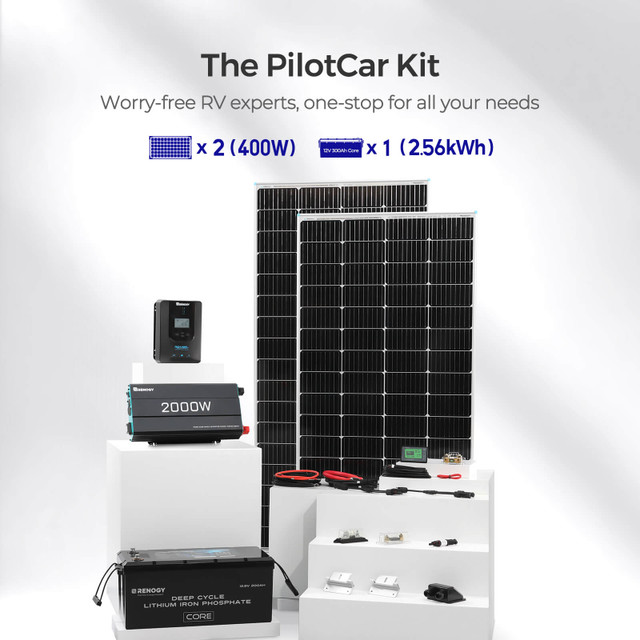
Renogy's RV solutions offer a comprehensive array of benefits designed to enhance the experience of RV enthusiasts. By harnessing efficient solar power through high-performance panels, Renogy enables RV owners to enjoy reliable electricity generation even in remote locations, reducing dependence on traditional power sources like generators. The key benefits include:
- Efficient Solar Power: Renogy's RV solutions utilize high-efficiency solar panels to maximize energy generation, ideal for off-grid living.
- Easy Installation: DIY-friendly kits with pre-drilled holes and mounting hardware simplify setup for users of all experience levels.
- Durable Construction: Panels are designed to withstand harsh outdoor conditions, ensuring longevity and reliability.
- Integrated Charge Controller: Includes a compatible charge controller to manage and protect battery health effectively.
- Environmental Benefits: Reduces carbon footprint by harnessing renewable solar energy, providing quiet and sustainable power for RVs.
Conclusion
RV solar panels provide a sustainable and efficient way to power your adventures on the road. By harnessing solar energy, they offer a reliable electricity source, reducing reliance on traditional fuels and enhancing environmental friendliness. Whether boondocking or seeking to minimize generator use, RV solar panels are a practical investment, saving costs on fuel and maintenance. They operate silently and emit no pollutants, improving the camping experience. With advancing technology, these panels are increasingly efficient and affordable, making them ideal for eco-conscious travelers aiming for energy independence. Embracing RV solar panels supports sustainable travel and ensures a greener journey for years ahead.
FAQs about RV Solar Panels
How to maintain RV solar panels?
Clean solar panels monthly with a soft cloth and mild soap, ensuring no abrasive materials are used. Regularly inspect for damage and secure connections. Monitor power output with a multimeter or charge controller. Remove snow gently in winter and ensure panels don't overheat in summer. Clear any shading obstructions and check for wear and tear on wiring and connectors.
How to install a RV solar panel system?
- Calculate power needs and select appropriate components: solar panels, charge controller, inverter, batteries, and wiring. Mount panels securely on the roof.
- Route cables to the charge controller and connect to batteries.
- Install the inverter near batteries to convert DC to AC power.
- Test the system to ensure functionality and regularly monitor performance using the charge controller's display.
What will a 200 watt solar panel run in a RV?
A 200-watt solar panel generates 800-1,200 watt-hours daily. It can power LED lights, charge phones, tablets, and laptops, and run low-power fans. It can also support small appliances like a TV for a few hours, depending on overall power consumption and sunlight availability. Energy management is crucial to maximize the efficiency of your solar setup.










